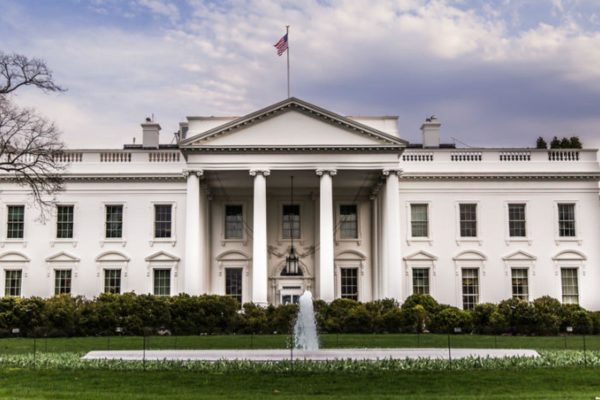The presidential election has exposed and exacerbated the deep divisions within American society. It is sometimes difficult to see what still unites us, other than shared dissatisfaction with our political system.
One of the presidential candidates is already declaring that the election is “rigged” if he loses. The other candidate and many of her supporters see their opponent as a threat to the foundations of our democracy. They might be correct, and there is no reason to anticipate that the internal threats to our democracy will disappear after the election.
But we have been here before. And we can emerge as a country together once again this time, if whoever is elected goes big.
As early as 1800, it took 36 ballots in the House of Representatives for the selection of Thomas Jefferson as president of an obviously divided country. In 1824, Andrew Jackson was denied the presidency in what his supporters called a “corrupt bargain” that merged Henry Clay’s and John Quincy Adams’ electoral support to give the latter the presidency.
When Jackson was finally elected in 1828, he pursued his revenge, firing the employees hired by Adams and cutting federal support for the Bank of the United States and other development efforts favored by his predecessor.
More recently, the elections of Franklin Roosevelt in 1932, John F. Kennedy in 1960 and George W. Bush in 2000 followed heated campaigns where supporters of the losers questioned the fairness of the outcome.
Roosevelt’s opponents claimed he had exploited the depression and pandered to African Americans, Jews, Catholics and other undesirables. Kennedy’s and Bush’s adversaries questioned the actual vote count in what were close elections filled with irregularities.
What held our divided country together after these divisive elections? Concession speeches by defeated candidates were important, but their influence is often exaggerated.
Andrew Jackson never affirmed the justice of the 1824 result, and the detractors of Roosevelt, Kennedy and Bush continued to question the legitimacy of those presidents long after their inaugurations. The same was true for opponents of Barack Obama, including those who denied his U.S. birth.
Elections rarely heal partisan divides in American history. In fact, they frequently deepen the anger and resentment of the losers, as is likely to happen after this election.
Bringing the country together is the most important task for the newly elected president. It is, of course, important to reach out to the defeated, but that has not been what held the country together in the past.
After a deeply divided election, past presidents have enlarged support in one way: going big. Instead of pursuing an existing party platform and trying to appease the other side, Jefferson, Jackson and Roosevelt announced ambitious agendas aimed at capturing new voters and isolating old opponents.
For Jefferson, this meant an expansion of the republic through the massive Louisiana Purchase.
For Jackson, post-election policy centered on clearing land of Indians and eliminating other barriers for white citizens to prosper.
Roosevelt, of course, announced a New Deal, where the government stepped into local communities to create jobs and insurance for suffering families.
A divided country needs a president who will break out of the existing debate and push toward exciting goals. The newly elected president must offer a new political paradigm, not just more of the same. Jefferson, Jackson and Roosevelt understood that. They succeeded in building huge majorities for their re-elections, and their parties, because their programs attracted new participants to the political process.
If Hillary Clinton is elected president, as seems likely according to current polls, she would be wise to follow the examples of Jefferson, Jackson and Roosevelt. Reaching out to members of the Republican Party is appropriate, but it will not extinguish their deep hatred of her and much of what she stands for. Similarly, returning to traditional Democratic policies will not give Clinton new political leverage; if anything, it will make her a prisoner to the loudest and most controversial Democratic voices in Congress.
If Donald Trump wins, he will need to show that he also has a serious plan to advance the country, not just his own interests.
But regardless of who wins, the new president must go big with an exciting, visionary and realistic program that attracts attention from the millions of Americans disillusioned with our political system. He or she must focus on job creation, small-business development, access to high-quality education, and climate change, above all.
The new president must offer people filled with fear a renewed sense of hope. Public enthusiasm for big policy change, not the rare experience of national unity, is what keeps our large and complex country together.
Jeremi Suri holds the Mack Brown Distinguished Chair for Leadership in Global Affairs at The University of Texas at Austin.
A version of this op-ed appeared in the Austin American Statesman, Fort Worth Star Telegram, Dallas Morning News and the Rio Grande Guardian.
To view more op-eds from Texas Perspectives, click here.
Like us on Facebook.




